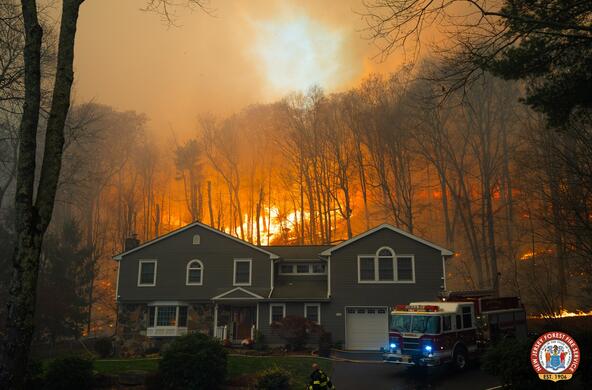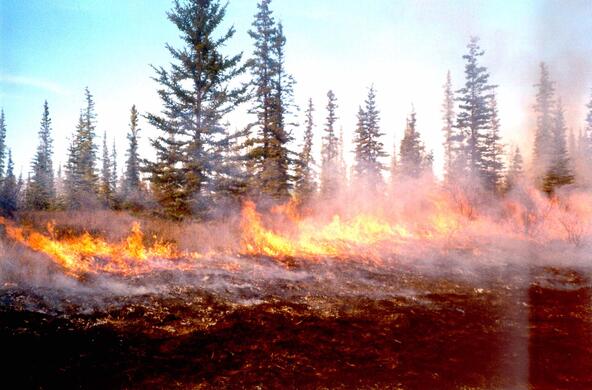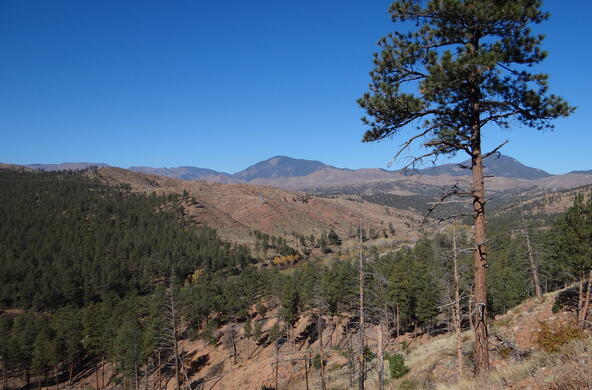Discover the causes and social-ecological consequences of increased wildfire in the western US. A panel of experts discuss why wildfires are on the rise, the role of climate change, the predicted fate of future forests, and ways that at-risk communities can adapt.
Large fires are becoming more frequent and severe across the western US. Since 1984, annual burned forest area has increased by about 1,100%. Lives, property, and livelihoods are routinely threatened and burned landscapes can be left ecologically transformed.
What is causing recent trends in fire activity? What will forests of the future look like? How can modeling wildfires and forest response guide adaptation strategies? These are among the questions explored. Panelists also discuss the importance of tailoring fire and forest management to the local context, considering regionally specific factors like forest type, environmental conditions, and the presence of people.
Panelists include: forest ecologist Winslow Hansen (Cary Institute), fire ecologist Phil Higuera (University of Montana), and natural resource sociologist Catrin Edgeley (Northern Arizona University).
Meet the panelists
Catrin Edgeley is an assistant professor of natural resource sociology in the School of Forestry at Northern Arizona University. As a wildfire social scientist, her research focuses on community adaptation to wildfire across diverse local contexts. Edgeley is particularly interested in how communities navigate postfire recovery, and how local experiences with past fire events influence responses to future risk. Edgeley holds a PhD in Natural Resources from the University of Idaho, and both an MSc in Risk and Environmental Hazards and a BSc in Geography from Durham University in the United Kingdom.
Winslow Hansen is a forest and ecosystem ecologist at Cary Institute of Ecosystem Studies. Hansen is investigating the changing Earth system by uncovering rules that govern interactions among forests, disturbances, and climate. His current work is focused on how wildfires and forests are changing globally, to predict where fires will pose the greatest threat, and how landscapes will change postfire. Hansen holds a PhD in Integrative Biology from the University of Wisconsin, Madison, an MSc in Forest Science from the University of Alaska, Fairbanks, and Bachelor's degrees in Ecology and Economics from the University of Montana.
Philip Higuera is a professor of fire ecology in the Department of Ecosystem and Conservation Sciences at the University of Montana, where he directs the PaleoEcology and Fire Ecology Labs. Higuera’s research spans western North America and has revealed how fire activity varies with climate change in recent decades and the distant past, and how forest ecosystems have responded to these changes. Higuera holds a PhD in Forest Ecology and an MS in Forest Ecology, both from the University of Washington, Seattle, as well as a BA in Biology, Environmental Studies, and Geology from Middlebury College.






